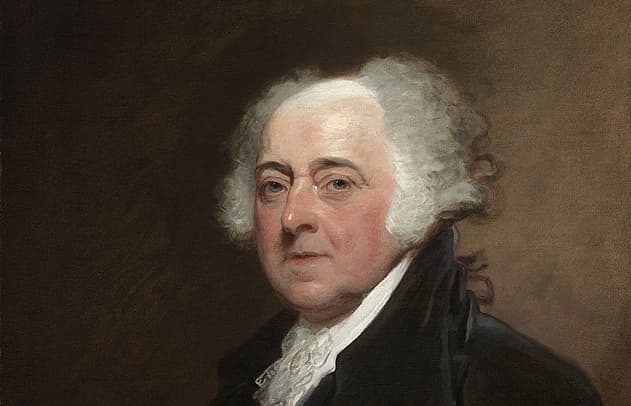The Poisoned Tree of Congress
Whatever surprise the January 6 Committee tries to spring will be seen by millions as the product of an unconstitutional process.

The final public hearing of the January 6 Committee — opening Wednesday — is a moment to read Article XXX of the Massachusetts Constitution. That might sound obscure, but the Bay State parchment is the world’s oldest functioning written constitution, and its Article XXX is the most famous formulation ever written in respect of separated powers, which is the most majestic element of our architecture for limiting the power of government.
“In the government of this commonwealth,” says Article XXX of the Massachusetts Constitution, “the legislative department shall never exercise the executive and judicial powers, or either of them; the executive shall never exercise the legislative and judicial powers, or either of them; the judicial shall never exercise the legislative and executive powers, or either of them; to the end it may be a government of laws, and not of men.”
The text has been italicized to emphasize the part of the principle that the January 6 committee is violating. As a legislative panel, the committee has sought from its inception to exercise an executive power — criminal prosecution. The panel’s solons were “borrowing techniques from federal prosecutions, employing aggressive tactics typically used against mobsters and terrorists,” the Times reported, actually hiring 14 ex-federal prosecutors.
For what would it do that? The Times reported the Committee sought to “break through stonewalling” from Mr. Trump and his coterie to “develop evidence that could prompt a criminal case.” The idea, the Times explained, was to surmount the panel’s lack of “authority to pursue criminal charges.” So its “best opportunity to hold Mr. Trump and his team accountable” was “pressuring” Attorney General Garland “to investigate and prosecute them.”
This mission creep arose despite the enabling resolution of the panel assigning it to “investigate the facts, circumstances, and causes” of the January 6 riot. It has long since become clear that by taking on and performing the functions of a prosecutorial body, the legislators of the committee lost sight of their constitutional role as writers of the law and instead came to see themselves as enforcers of it.
It’s no wonder why the framers, including John Adams, of the United States Constitution drew so heavily on that of Massachusetts. And why, in separating powers, the Framers also prohibited Congress from enacting bills of attainder, that is, from declaring individuals guilty of crimes. The goal was to avoid what the Supreme Court has called “trial by legislature,” — just precisely what the January 6 committee has been trying to achieve.
The ban on bills of attainder was a “safeguard against legislative exercise of the judicial function,” as Chief Justice Warren wrote in United States v. Brown. They were one of the tools of tyranny under the British monarchy, used to punish individuals who had run afoul of parliament. The Framers, Warren wrote, “sought to guard against such dangers by limiting legislatures to the task of rule-making.” The January 6 committee’s defiance is brazen.
The Committee knows this. Its hearing will be shadowed by doubts over its legitimacy marked the other day by the riders of the District of Columbia Circuit of the United States Court of Appeals. The riders allowed Congress to withdraw its subpoena for evidence from the Republican National Committee rather than having the panel’s legality weighed in court, but said that left “important” constitutional questions “unsettled.”
One would have to go back to the House Un-American Activities Committee — known as HUAC — to find a moment in our history when the constitutionality of the behavior of a major congressional committee had itself fallen into question. The J6 committee could yet come up with something dispositive. It hasn’t yet, though, and even if it does, whatever it comes up with would start to look like fruit from a poisoned tree. They should have read John Adams.

